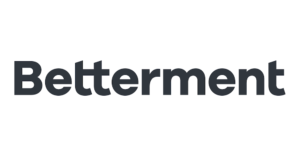The world of investing can prove daunting for people who lack any experience. In addition, the notion that people need to have a lot of money to invest can discourage them from opening an account. However, the rise of online brokers and robo-advising has made it easier than ever to begin investing, even with only a little bit of money to put into an account. Ultimately, the best way to learn about investing is to get your feet wet, so it pays to jump in early even if you have limited funds. Once you have made the decision to start investing, you will next need to figure out where to put your money. Several different online brokers exist, and each one has its own particular niche. The following are some options to consider:
1. Betterment
A robo-advisor, Betterment aims to help people create a diversified portfolio using a computer algorithm. Due to this business model, Betterment offers an affordable option. The company charges only 0.25 percent in management fees rather than a set amount, and no minimum balance exists. Betterment is a great choice for people who want an automated experience with the opportunity to become more involved over time. You can pay extra for a premium plan, which involves a consultation with certified financial planners and investment experts who can provide advice based on your personal situations and goals. The premium plan requires an account balance of at least $100,000 and increases the annual fee to 0.40 percent.
2. Public
The Public model is unique and perfectly situated for the beginning investor. The company offers fractional shares of thousands of exchange-traded funds (ETFs) and stocks that you can purchase without a minimum, commissions, or fees. Also, Public provides an interactive social investing experience. This environment is ideal for beginners to increase their financial literacy in a community setting that promotes the shared exploration of relevant topics. Your Public profile displays your investments without any dollar amount. On the Public feed, you can discuss your ideas related to these investments, and other people can comment with their own beliefs and ideas. Furthermore, Public makes it easy to discover stocks related to your interests.
3. Acorns
One of the most passive ways to invest, Acorns is another great option for beginners. Acorns connects to debit and/or credit cards and then “rounds up” purchases to the nearest dollar and invests the different on your behalf. Most people do not even notice the difference in their spending, yet their investment account continues to grow. The company uses a series of questions to determine how the money should be invested. In addition, investors have access to Acorns Later, which links to an IRA or a different type of retirement account. Typically, the service costs only $1 a month.
4. M1 Finance

A free platform, M1 Finance provides investors with an artificial intelligence-driven guide to investing, as well as a central place for managing all of your investments. M1 is designed as an all-in-one financial solution and can even connect to a checking account for easy transfers. The company’s app makes it easy to track your entire custom portfolio or expert portfolios in order to learn more about how they make investing decisions. In addition, you can opt for fractional shares to diversify from the beginning. The app also makes it possible to schedule transactions so that everything is automated. Beginners can learn a lot from M1, which is also a helpful source of information for more experienced investors.
5. Robinhood
Designed for people who are new to investing, Robinhood offers a customized news feed to help people learn about the stock market and a variety of tools you can use to get started. You can invest through Robinhood with as little as $1, and you will pay no fees or trade commissions, which is one of the primary advantages. Moreover, the app is designed for ease of use. Another big draw of Robinhood is the fact that you can purchase fractional shares to diversify, even with limited funds. Robinhood has a tool that helps people to build a solid portfolio based on the amount they have to invest.
6. Webull
Unlike the other platforms on this list, Webull lacks a robo-advisor component, so you will need to select and manage your own stocks. However, Webull provides support during this process. The app offers regular stock market updates to help people make solid decisions, and it also supplies various learning tools. In addition, customer service representatives are always around to help. Webull is also secure, with an identity verification step required at sign-up. For beginners, the benefit of this particular option is the fact that Webull charges no commission on trades, and there is no minimum balance requirement. Thus, people can scale up on their own time without having to worry about paying any fees.






